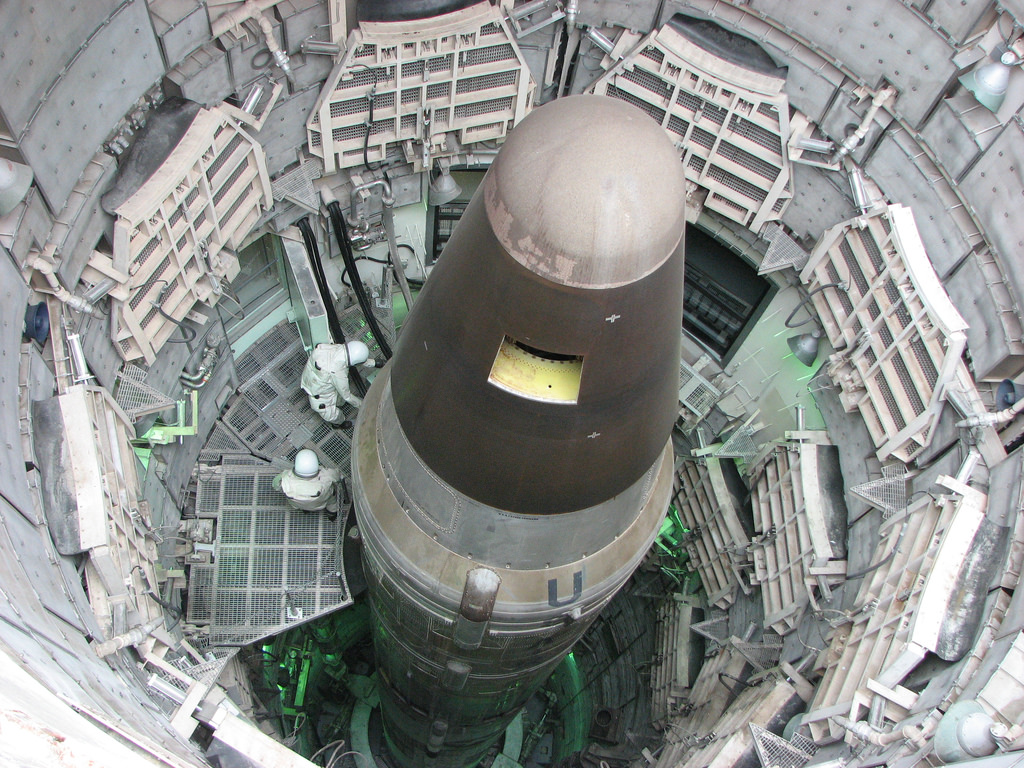“As tensions rise, it is time to say no to nukes”
September 7th, 2017The world is in danger as the number of states with nuclear weapons has increased and the long lasting arms race between nuclear weapon states continues, writes Abhay Shah, 18, a Commonwealth Correspondent from Siliguri in India, who draws attention to the UN Non-Proliferation Treaty.
The Treaty on Non-Proliferation of Nuclear Weapon (NPT) as the legal international instrument has the ethical rules to bind parties to reduce nuclear weaponry and to promote the peaceful uses of nuclear power. Unfortunately, weak political will hinders the states’ capability to prevent the contest. In the name of national interest and security, big military budget states are continuing their nuclear-modernisation programmes. Some action should be taken in the cause of international stability and security.
Weaponisation could be interpreted as the transfer of material to a weapon. It could be biological, chemical or nuclear material, and could be deployed or integrated as a weapon. Even in the name of national interest and security, the ability to weaponise and convert nuclear power for weapons should be limited. The impacts are too lethal. People are still wondering: “As the influence is so great, can the race be stopped?” Are there any ways to avoid the nuclear weaponisation program?”
Nuclear should be used only for world harmony.
World development has shown the tendencies of conflict escalation and the common response to overcome the problem by hard power resolution. It can be seen in some hot points such as the Middle East, whether Israel – Palestine, Iran or Afghanistan. Meanwhile North Korea, India and Pakistan are testing their nuclear capability and signaling the capability to produce nuclear power and develop nuclear weapons.
The increase in China’s military budget by 7.5 per cent in 2010 was a warning of China’s effort to balance weaponry capacity with other super power states. Every year China steadily raises its military spending. Likewise Russia, France, UK, India and Pakistan have sought to strengthen national security and spend big amounts to cope with their state vulnerability.
People are troubled knowing this progress. One sensitive issue could ignite nuclear-equipped countries to release their power and drag others to start World War III. The world has a history of dangerous leaders who misuse power: consider Pol Pot of Cambodia who killed thousands of his people for opposing him, or Hitler. What about the threat of North Korean nuclear retaliation against the US and South Korea for joint exercises? Regional tension is soaring and upsetting stability.
The impact of a nuclear explosion is frightening. The overwhelming power has been proven in Hiroshima and Nagasaki, with mutating effects of radiation that can be seen today. The Japan Times online news agency reported in August 2010 that survivors of the bombing 65 years ago suffered from dementia, various cancers, respiratory diseases and acute leukemia.
The nuclear accident in Chernobyl is another illustration of this case. The nuclear plant exploded, causing radioactive pollution in the surrounding area and over western parts of the former Soviet Union, with evidence that radiation was carried across Europe and some Nordic countries, as far as eastern North America. This disaster led to the evacuation and resettlement of over 336.000 people (World Health Report, 2007).
An anti-satellite missile test conducted by China in the beginning of 2007 and repeated in 2010 successfully shot disused satellites. Although the experiments caused millions of pieces of debris and posed a threat to space navigation in the future, China argued that it would be safe for orbiting spacecraft. In contrast, another state would regard this event as threat to their long range missiles. Meanwhile, outer space will be the new play-ground for an arms race.
The Treaty on the Non- Proliferation of Nuclear Weapons (NPT) is the cornerstone of international security. Signed on July 1st 1968 by the five permanent members of the Security Council of the United Nations and 59 other countries, it came into force in 1970. In 1995 the treaty was prolonged to indefinite extension and 189 states are parties now. Five states are recognized as nuclear weapon states: the US, Russia, the UK, France and China. The United Nations describes the purpose of the treaty to avoid nuclear weapons and its technology extending all over the world, and to support the disarmament program. The NPT also protects the parties’ rights to develop nuclear for peaceful uses. It is a significant move for any states to join forces and build partnerships, and to move toward a peaceful world, as international security and stability are needed to shelter economic growth. And the most important factor here is political will.
The world needs peace, not conflicts. An arms race threatens the serenity of the world. Stability and security create peace. Complete disarmament would be the best way to reduce nuclear weapons, but it is important to have strong willed leaders. In the beginning, negotiation and partial disarmament would be excellent – followed by arms control. Cooperation and measured steps should be increased to facilitate parties of the NPT to voluntarily reduce their stores of deadly weapons, while the use of embargo should be the last option.
Reach me on Twitter https://twitter.com/Abhay_Shah03
Photo credit: Devin Ford IMG_1935 via photopin (license)
…………………………………………………………………………………………………………………
About me: I am studying at Sacred Heart School, where I have been prefect for two years and am pursuing Human Resource and Management. I enjoy public speaking, and in collaboration with the Rotary Club have formed Interact Club, which sponsors projects health and education projects for underprivileged children. My purpose is not to create people in my own image, but to develop people who can create their own image and move on. I believe in “collaboration and not competition”.
…………………………………………………………………………………………………………………
Opinions expressed in this article are those of the author and do not necessarily represent the views of the Commonwealth Youth Programme. Articles are published in a spirit of dialogue, respect and understanding. If you disagree, why not submit a response?
To learn more about becoming a Commonwealth Correspondent please visit: http://www.yourcommonwealth.org/submit-articles/
…………………………………………………………………………………………………………………





